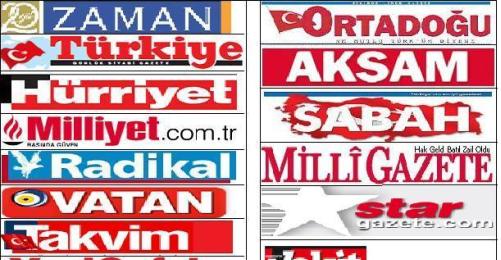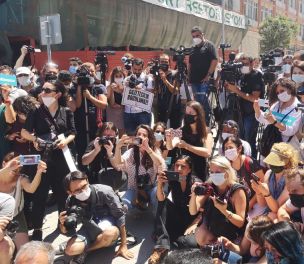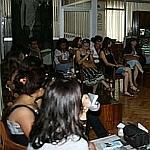The second report of the "Media Reports Series" of the Democratization Program by the Turkish Economic and Social Studies Foundation (TESEV) explains the effects of legal amendments touching the media sector in Turkey regarding both employers and employees. Furthermore, the report explores working relations in the media sector and advertising revenues.
Both TESEV reports prepared in the scope of the "Media and Democracy" study were introduced on 25 June in Istanbul at the conference on "Media in Transition: Press-Democracy Relations and Economic Politics of the Media".
The report was prepared by Dr Ceren Sözeri, Researcher at the Galatasaray University Faculty of Communications, and Dr Zeynep Güney. It was published by TESEV Publications under the title "Politics of Economy of the Turkish Media: Sector Analysis". The section on "Working Relations in the Turkish Media Section" touches upon legal regulations that are important for current journalism.
The legal developments can be summarized as follows: The first Turkish law about journalists was the Press Association Law (No.5311) enforced in 1938. This law was the basis of Law No. 5953 on Sector Regulations between Press Employees and Employers that came into force in 1952. This law recognized the journalists' rights to from trade unions, to insurance, written contracts, weekly holidays and leave.
"Journalists remain defenceless towards their bosses"
Subsequently, the Istanbul Journalists Union was established on 10 July 1952. After the coup in 1960, the National Unity Committee first formed the Press Declaration Institution and then added Law No. 5953, a regulation in support of journalists known as the "212" regulation. The employers did not like the changes in favour of their employees. They did not publish any newspapers for three days. The journalists published a newspaper with the title "Press" during these three days with the support of the union.
Altough Law No.5953 seems to be regulating working relations in the media sector, several amendments and the fact that journalists are not being employed according to the law create many problems. The restrictions for journalists to association leave the employees weak and defenceless towards media companies.
Unionization started with military coup
The Turkish Journalists Union was formed in 1963. In the 1970s, it made important contributions to the utilization of the right to collective bargaining and the right to strike. Three years after the coup d'état in 1980, the Profession Statutes were enforced in 1983. Therupon, the printing houses employees and white-collar workers left the union. This law was also the beginning of the lack of unionization.
Other reasons for the lack of unionization were the corresponding attitude of the bosses, the lack of an effective organization against this attitude, the lay-off of union members and even the obstruction for these workers to find a new job at another media outlet.
It is impossible to find a reliable source on informal employment and employment in the Turkish media sector. Journalists working in the scope of Law No.5953 can obtain the Yellow Press Card after a certain time. However, since the employers usually do not employ journalists in the scope of this law, the number of Yellow Press Card holders is very low.
One out of four journalists work for less than TL 1000 a month
The number of male Yellow Press Card holders outnumbers the female card holders. About 90 percent of managerial positions at newspapers are taken by men.
79 percent of all workers in the media sector have been in their current job for less than five years. 13 percent have been in the same job for six to ten years; only 8 percent of media employees have been in the same position for more than eleven years. This shows the high ratio of a frequent changing of jobs in the media sector.
Media employees in Turkey gain TL 1250 (€625) on average per month. According to the answers obtained in a survey, the highest monthly salary was TL 35,000 (€17,500) whereas one quarter of all journalists work for less than TL 1,000 (€500) per month.
Journalists change jobs frequently and work under unbalanced salary policies. Another factor that influences the working and living conditions of journalists is the fact that the vast majority of media companies are based in Istanbul. (AS/VK)








